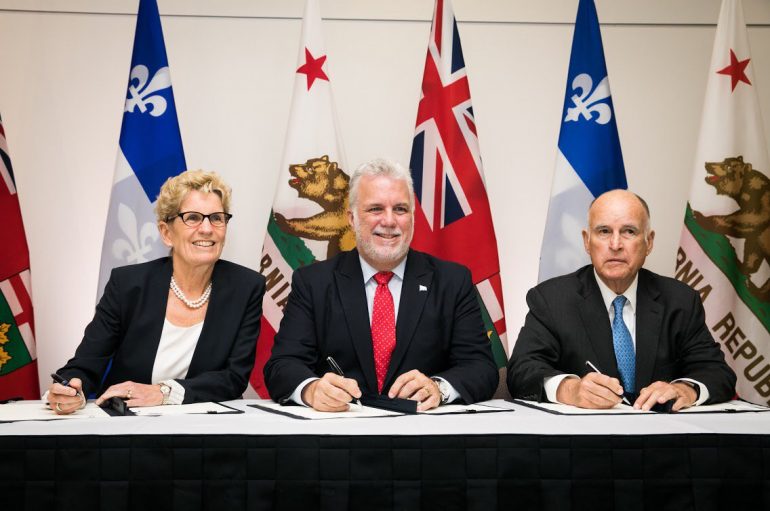At the seventh joint meeting between cabinet ministers, Quebec Premier Philippe Couillard and Ontario Premier Kathleen Wynne announced a new Memorandum of Understanding to strengthen cooperation in the development of artificial intelligence.
Broadly, the two provinces plan to expand opportunities for collaboration in research, talent attraction, skills development, and business growth in artificial intelligence.
“The 21st century is bringing a wave of change around the world that we are just beginning to appreciate,” said Couillard. “In this context, we have begun a profound transformation in Québec, which is based on the innovation, creativity, and know-how of Québecers. In Montreal, the artificial intelligence sector is growing and partnerships such as the one announced today allow us to better share knowledge and strengthen our leadership role.”
The two provinces hope to support advancements in the design and commercialization of innovative technologies, such as autonomous vehicles, speech recognition, fraud detection, and medical imaging and diagnosis.
“Every time the governments of Ontario and Québec meet, we make real progress on the things that matter most to people and businesses across our provinces,” said Wynne. “I am so pleased to continue our long tradition of working together, sharing resources and ideas on common opportunities and challenges, such as innovation, climate change and economic growth. Our relationship is strong and, in turn, our commitment to cooperation strengthens Canada as a whole.”
That same day, the Premiers signed an agreement on climate change with Governor of California Jerry Brown.
Toronto and Montreal have gained a reputation for their strong AI talent; recently, Samsung opened an AI lab led by Montreal Institute for Learning Algorithms’ Yoshua Bengio, while Toronto-based startups like Deep Genomics are getting attention from global firms.


